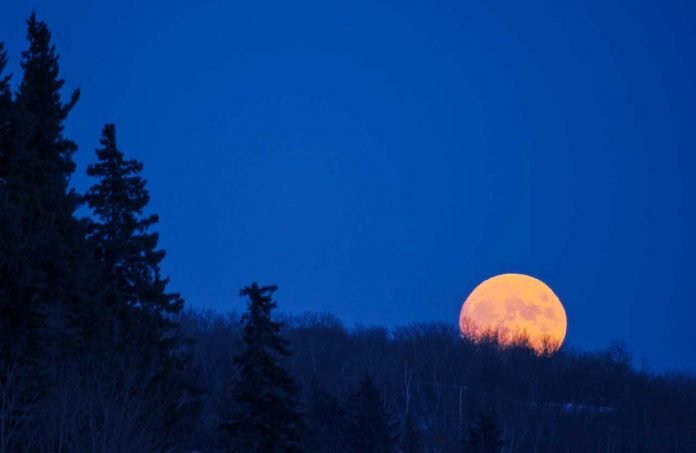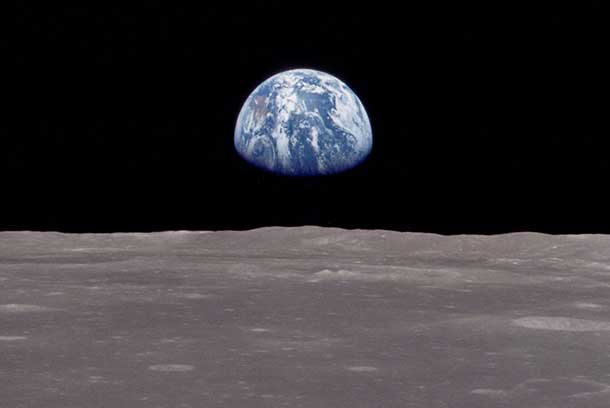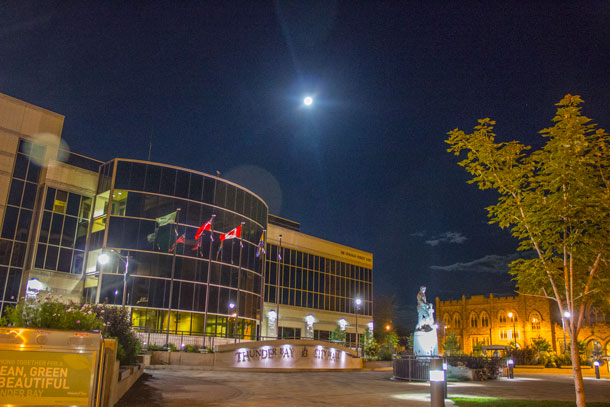Its a Blue Moon and We are Not in Kentucky!
THUNDER BAY – LIVING – If you look up at the moon the next time, it is a full and very bright sight in the night sky. This August we have had two cycles of a full moon during the month.
The night sky has been a canvas of wonderment for humanity since time immemorial. Among its many celestial treasures, the “Blue Moon” has captured the imagination of people around the world. This rare lunar event has sparked curiosity and folklore, adding to the mystique of our nearest cosmic neighbour. Additionally, in Indigenous cultures, the moon holds profound significance, with “Grandmother Moon” playing a pivotal role in their traditions and beliefs. In this article, we’ll explore what a “Blue Moon” is and delve into the profound cultural significance of Grandmother Moon in Indigenous cultures.
Understanding the Blue Moon
What Exactly is a Blue Moon?
A Blue Moon is a term often used to describe the second full moon within a calendar month. This unusual event occurs roughly every 2.7 years due to the misalignment between the lunar month, which is about 29.5 days long, and our Gregorian calendar month, which averages 30 to 31 days. When two full moons happen within the same calendar month, the second one is called a Blue Moon, while the first one retains its traditional name.
The Origin of the Term “Blue Moon”
The term “Blue Moon” has an interesting history. It’s believed to have originated in the 16th century when the word “blue” was used in Old English and other languages to describe something rare or absurd, rather than referring to the colour. Over time, this term became associated with the infrequent occurrence of two full moons in a single month. Despite its name, Blue Moons aren’t actually blue in colour; they appear just like any other full moon.
The Cultural Significance of the Blue Moon
Myths and Folklore
Throughout history, Blue Moons have been a source of fascination and have often been surrounded by myths and folklore. Some cultures believed that Blue Moons held special mystical powers, while others saw them as harbingers of change. In modern times, they have also been associated with the concept of “once in a blue moon,” signifying something that happens very rarely.
A Time for Reflection
Many people use the occurrence of a Blue Moon as an opportunity for introspection and setting intentions. Some see it as a chance to reset goals or make life-changing decisions, aligning with the idea of a rare celestial event symbolizing unique opportunities.
Grandmother Moon in Indigenous Culture
The Moon as a Guiding Force
In Indigenous cultures across the globe, the moon is often referred to as “Grandmother Moon” or other similar terms. It holds a central place in their spiritual and cultural traditions. Grandmother Moon is seen as a guiding force, a source of wisdom, and a symbol of continuity and connection with ancestors.
Lunar Phases and Traditional Wisdom
Indigenous cultures closely observe the phases of the moon and incorporate them into their daily lives. Each lunar phase is associated with specific activities, ceremonies, and teachings. For example, the full moon may be a time for community gatherings and storytelling, while the new moon might be a period for introspection and planning.
Healing and Connection
In Indigenous healing practices, Grandmother Moon is considered a powerful ally. Medicinal plants and herbs are often gathered and prepared in accordance with lunar phases, believing that the moon’s energy enhances their healing properties.
The Blue Moon, with its sporadic appearance, continues to captivate us with its celestial charm, inspiring myths and traditions across cultures. In Indigenous cultures, Grandmother Moon is an enduring symbol of wisdom, guidance, and connection to the natural world. As we gaze up at the night sky, we are reminded of the profound and diverse ways in which the moon, whether rare or constant, continues to influence and enrich our lives.







